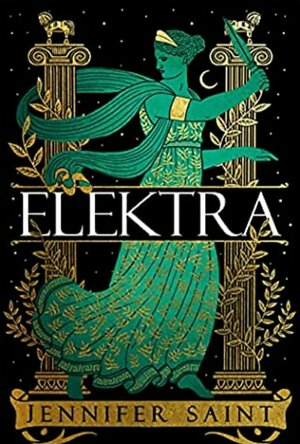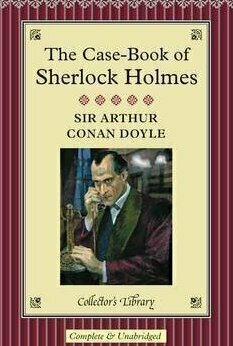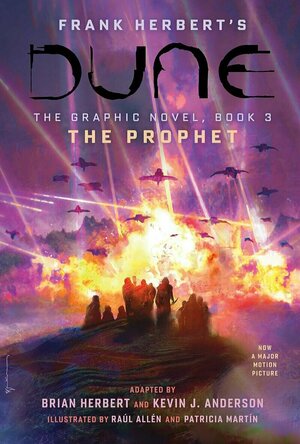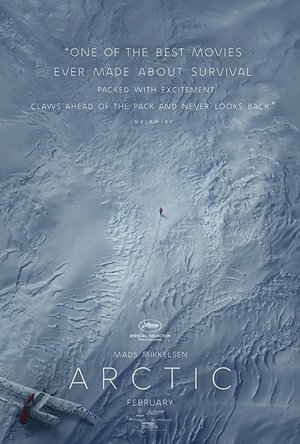
Elektra
Book
The House of Atreus is cursed. A bloodline tainted by a generational cycle of violence and...
Greek Mythology Historical fiction Retellings Feminism Audiobook
Hazel (2934 KP) rated The Wilderness Retreat in Books
Feb 26, 2023
What I liked about it: the setting and the general creepiness.
What I didn't like about it: the main character ... well, actually, most of the characters if I'm honest, the repetitive nature of some of the story, the dream sequences, lack of anything much happening most of the time and whilst the "mystery" was intriguing in the beginning, the twist was, for me, pretty obvious.
I'm sorry I didn't enjoy this as much as I was hoping but I guess you can't please everyone all of the time and there are plenty of very positive reviews for this book so if it sounds like your kind of story, give it a go.
Thank you to HQ and NetGalley for enabling me to read and share my thoughts of The Wilderness Retreat.
David McK (3705 KP) rated The Casebook of Sherlock Holmes (Sherlock Holmes #9) in Books
May 12, 2024
The final entry in Arthur Conan Doyle's Sherlock Holmes canon, which - again - I experienced through a mixture of reading and listening to the Stephen Fry narrated Audible version, and which is also really once again a collection of short stories rather than a single over-arching narrative.
What is unique in this collection, though, is that some of the stories are presented as Holmes himself delivering the narrative, rather than Watson acting as the biographer.
I also noticed - perhaps reflecting the nature of the time in which they were written, and Doyle's own interests - that there are more of the, shall we say, supernatural elements in the case chosen ("The adventure of the Sussex Vampire" springs to mind, for example) although - in all cases - the supernatural elements are later debunked by Holmes himself.
As a whole? I thoroughly enjoyed my time in the company of Holmes and Watson.
David McK (3705 KP) rated Frank Herbert's Dune, the Graphic Novel book 3: The Prophet in Books
Apr 6, 2025
Which I'm well aware, due to the nature of the medium, leaves a lot out.
As such, it's interesting reading this (after having read the previous 2 entries in the same graphic novel series) to see how much is familiar, and how much is changed.
Oh, the basics are there right enough (in the movies), but there are several differences to the story: Paul Atriedes sister (only teased in Part 2), here, being the most prominent example.
Not having read the 'original' original, I can't say how much was changed for the move from print to graphic novel medium, but I do believe that the authors/artists/stencillers here did try to stick as close as possible to that story.
I can understand why it was slimmed down for the move to the big screen.

Hard Headed Woman
Book
No one but Hannah Johansson believes her father was murdered. Not even her mother. The doctors say...
Comedy Mystery
Gareth von Kallenbach (980 KP) rated Arctic (2019) in Movies
Jul 2, 2019
A lone man identified only as Overgård (Mads Mikkelsen) has crashed his cargo plane somewhere in the arctic. We don’t know how long he has been stranded there, but long enough for him to have carved out a giant S.O.S in the snow. He has converted his downed plane into his new home and goes about the same routine every day. He sets his watch alarm to keep his schedule, which involves catching fish through the ice, and setting out in a different direction each day to manually wind his transponder in the hopes that a rescue will finally come.
One day, a day like countless days before it, Overgård’s transponder turns from red to green and in the distance a helicopter appears. His lucky day soon turns into tragedy as the harsh winds of the Arctic toss the helicopter around like a kite in a hurricane, crashing it to the ground. Overgård quickly runs to the crash site only to find that one of the pilots has died in the crash, and the other (Maria Thelma Smáradôttir) is barely conscious and has a gaping wound in her side. In a scene that could almost be described as humorous (if it wasn’t for the dire situation itself), Overgård crafts a sled out of the helicopter’s sliding door to carry the woman back to the safety of his plane, only to find out the next day that inside the helicopter was an actual rescue sled.
Sadly, it isn’t long before the young pilot’s wound begins to fester that Overgård must make a choice. Stay in the little slice of heaven that he has carved up for himself or risk the forces of nature in an effort to save the woman’s life. With a map he recovered from the downed helicopter, Overgård is able to identify an outpost and carefully plots out the journey that will take them there. The journey he plans for will take several days and has numerous obstacles to overcome. Yet, with a heart that clearly is as large as the vastness of the arctic itself, he realizes he has no choice.
Arctic is a movie with very little dialog, other than an occasional comment to himself or an attempt to rouse his unconscious guest. For a movie that says so little it’s the atmosphere that says so much. The film attempts to capture the harsh conditions that Overgård faces along his journey and does it so brilliantly that you can almost feel the icy weight as it bears down. The audience struggles with every wintery step as if they are not only spectators, but active participants in the journey. The scenery is as awe inspiring as it is deadly. The music seamlessly blends into the environment to a point where you are aware it’s there but doesn’t break the immersion.
Arctic could almost be mistaken as a documentary, a film about one mans survival in one of the most inhospitable places on the planet. Its pacing is deliberate, even if it is a bit slow at times. There is little need to add extra flair or danger into the mix, because nature alone provides it in spades. Arctic is not a movie that will appeal to those looking for non-stop action. At its heart it is really a movie about man vs nature, and nature can be a beast all its own. Arctic is certainly a movie for those looking for something a bit different. For those who are looking for a survival movie that doesn’t take place on a deserted isle, then this is right up your alley. Arctic shows that sometimes realism is far more interesting than fiction.
Cody Cook (8 KP) rated Writings Of Thomas Paine Volume 4 (1794 1796); The Age Of Reason in Books
Jun 29, 2018
The book seems to have had three major objectives: the support of deism, the ridicule of what Paine found loathsome in Christian theology, and the demonstration of how poor an example the Bible is as a reflection of God.
In a sense, Paine's arguments against Christian theology and scripture were meant to prop up his deistic philosophy. Paine hoped that in demonizing Christianity while giving evidences for God, he would somehow have made the case for deism. But this is not so. If Christianity is false, but God exists nonetheless, we are not left only with deism. There are an infinite number of possibilities for us to examine regarding the nature of God, and far too many left over once we have eliminated the obviously false ones. In favor of deism Paine has only one argument—his dislike of supernatural revelation, which is to say that deism appeals to his culturally derived preferences. In any case, Paine's thinking on the matter seemed to be thus: if supernatural revelation could be shown to be inadequate and the development of complex theology shown to be an error, one could still salvage a belief in God as Creator, but not as an interloper in human affairs who required mediators.
That being said, in his support of deism, Paine makes some arguments to demonstrate the reasonableness in belief in, if not the logical necessity of the existence of, God which could be equally used by Christians.
For instance, just as the apostle Paul argued in his epistle to the Romans that, "what can be known about God is plain to [even pagans], because God has shown it to them. For his invisible attributes, namely, his eternal power and divine nature, have been clearly perceived, ever since the creation of the world, in the things that have been made" (Romans 1:19-20, ESV), so also Paine can say that, "the Creation speaketh an universal language [which points to the existence of God], independently of human speech or human language, multiplied and various as they be."
The key point on which Paine differs from Paul on this issue is in his optimism about man's ability to reason to God without His assisting from the outside. Whereas Paul sees the plainness of God from natural revelation as an argument against the inherent goodness of a species which can read the record of nature and nevertheless rejects its Source's obvious existence, Paine thinks that nature and reason can and do lead us directly to the knowledge of God's existence apart from any gracious overtures or direct revelation.
On the witness of nature, Paine claims, and is quite correct, that, "THE WORD OF GOD IS THE CREATION WE BEHOLD: And it is in this word, which no human invention can counterfeit or alter, that God speaketh universally to man." What is not plainly clear, however, is that man is free enough from the noetic effects of sin to reach such an obvious conclusion on his own. Indeed, the attempts of mankind to create a religion which represents the truth have invariably landed them at paganism. By paganism I mean a system of belief based, as Yehezkel Kaufmann and John N. Oswalt have shown, on continuity.iv In polytheism, even the supernatural is not really supernatural, but is perhaps in some way above humans while not being altogether distinct from us. What happens to the gods is merely what happens to human beings and the natural world writ large, which is why the gods are, like us, victims of fate, and why pagan fertility rituals have attempted to influence nature by influencing the gods which represent it in accordance with the deeper magic of the eternal universe we all inhabit.
When mankind has looked at nature without the benefit of supernatural revelation, he has not been consciously aware of a Being outside of nature which is necessarily responsible for it. His reasoning to metaphysics is based entirely on his own naturalistic categories derived from his own experience. According to Moses, it took God revealing Himself to the Hebrews for anyone to understand what Paine thinks anyone can plainly see.
The goal of deism is to hold onto what the western mind, which values extreme independence of thought, views as attractive in theism while casting aside what it finds distasteful. But as C.S. Lewis remarked, Aslan is not a tame lion. If a sovereign God exists, He cannot be limited by your desires of what you'd like Him to be. For this reason, the deism of men like Paine served as a cultural stepping stone toward the atheism of later intellectuals.
For Paine, as for other deists and atheists like him, it is not that Christianity has been subjected to reason and found wanting, but that it has been subjected to his own private and culturally-determined tastes and preferences and has failed to satisfy. This is the flipside of the anti-religious claim that those who believe in a given religion only do so because of their cultural conditioning: the anti-religionist is also conditioned in a similar way. Of course, how one comes to believe a certain thing has no bearing on whether that thing is true in itself, and this is true whether Christianity, atheism, or any other view is correct. But it must be stated that the deist or atheist is not immune from the epistemic difficulties which he so condescendingly heaps on theists.
One of the befuddling ironies of Paine's work is that around the time he was writing about the revealed religions as, “no other than human inventions set up to terrify and enslave mankind, and monopolize power and profit," the French were turning churches into “temples of reason” and murdering thousands at the guillotine (an instrument of execution now most strongly identified with France's godless reign of terror). Paine, who nearly lost his own life during the French Revolution, saw the danger of this atheism and hoped to stay its progress, despite the risk to his own life in attempting to do so.
What is odd is that Paine managed to blame this violent atheism upon the Christian faith! Obfuscated Paine:
"The Idea, always dangerous to Society as it is derogatory to the Almighty, — that priests could forgive sins, — though it seemed to exist no longer, had blunted the feelings of humanity, and callously prepared men for the commission of all crimes. The intolerant spirit of church persecution had transferred itself into politics; the tribunals, stiled Revolutionary, supplied the place of an Inquisition; and the Guillotine of the Stake. I saw many of my most intimate friends destroyed; others daily carried to prison; and I had reason to believe, and had also intimations given me, that the same danger was approaching myself."
That Robespierre's deism finally managed to supplant the revolutionary state's atheism and that peace, love, and understanding did not then spread throughout the land undermines Paine's claims. Paine felt that the revolution in politics, especially as represented in America, would necessarily lead to a revolution in religion, and that this religious revolution would result in wide acceptance of deism. The common link between these two revolutions was the idea that the individual man was sovereign and could determine for himself what was right and wrong based on his autonomous reason. What Paine was too myopic to see was that in France's violence and atheism was found the logical consequence of his individualistic philosophy. In summary, it is not Christianity which is dangerous, but the spirit of autonomy which leads inevitably into authoritarianism by way of human desire.
As should be clear by now, Paine failed to understand that human beings have a strong tendency to set impartial reason aside and to simply evaluate reality based on their desires and psychological states. This is no more obvious than in his own ideas as expressed in The Age of Reason. Like Paine's tendency to designate every book in the Old Testament which he likes as having been written originally by a gentile and translated into Hebrew, so many of his criticisms of Christian theology are far more a reflection upon himself than of revealed Christianity. One has only to look at Paine's description of Jesus Christ as a “virtuous reformer and revolutionist” to marvel that Paine was so poor at introspection so as to not understand that he was describing himself.
There is much more that could be said about this work, but in the interest of being somewhat concise, I'll end my comments here. If you found this analysis to be useful, be sure to check out my profile and look for my work discussing Paine and other anti-Christian writers coming soon.

Healing Garden
Book
Presents mature healing garden design theory and research and typical cases. The idea of a 'healing...
Sanjay Patil
Book
Sanjay Patils tryst with architecture began in his early childhood as he soaked up the environs that...
Bird Watching
Book
You have now before you a representation of one of the most richly coloured of birds, and one whose...




